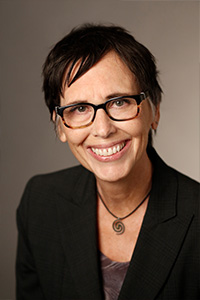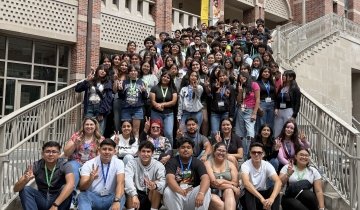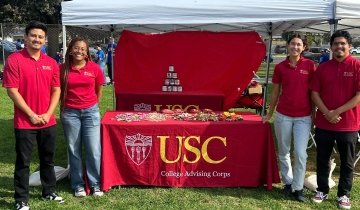
Professor of Clinical Education Mary Andres visited with Obama administration officials at the end of September as part of a community briefing organized by the White House Office of Public Engagement to bring attention to the needs of the bisexual community.
Kicking off the beginning of National Bisexuality Awareness Week, the White House invited 100 advocates to Washington to celebrate progress and identify goals for future federal programs. Attendees came from both the U.S. and Great Britain to collaborate and develop curriculum tools for educators.
While President Barack Obama has led numerous changes in federal policy designed to protect the LGBT community, the bisexual community faces unique challenges that were part of the discussion in Washington.
According to Andres, whose work includes teaching cultural competency related to sexuality, those who identify as bisexual face disproportionate risks of mental and physical health struggles, poverty, addiction and violence.
“Mixed messages about sexuality in American culture still contribute to an erasure of bi identities because the term bisexual draws attention to sexuality as opposed to non-specific language such as Fluid or Queer,” Andres says.
As the bisexual community continues to organize, Andres noted that it has also become easier to explore its intersection with communities of color and transgender people.
This was the first official recognition of the bisexual community by the White House, Andres says. In addition to having the chance to collaborate with other scholars studying issues facing bi people, many attendees were also in Washington for an “unconference” hosted by the organization Freedom for All Americans, utilizing focus groups to explore some of the same issues discussed at the White House.
From those efforts came the foundation of a shared open-source resource, to be housed at the Vanderbilt University Library, which will be available to help scholars perform research in the bi community.
“Because many allies are from remote and disparate locations, the sense of community and celebrations keep the activist spirit alive,” Andres says. “Hopefully in the future we can continue to reduce shame and stigma, and sexual minority youth will increasingly feel comfortable adopting whatever labels fit while finding communities that mirror their experiences and welcome them.”


